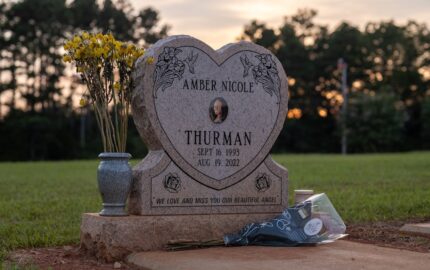CAMBRIDGE, Mass. – The Los Angeles Times has won the Worth Bingham Prize for Investigative Journalism for its six-part series “Billions to Spend.” During an 18-month investigation, the paper found that a $5.7 billion program to rebuild nine community colleges in Los Angeles was plagued with serious problems including mismanagement and reckless spending that wasted tens of millions of dollars and betrayed the public’s trust.
The $20,000 Bingham Prize will be presented by the Nieman Foundation for Journalism at Harvard in Cambridge, Mass., on April 19, 2012.
Lead reporters for the Times series were Michael Finnegan and Gale Holland, with assistance from investigative reporter Paul Pringle, data specialists Doug Smith, Sandra Poindexter and Ben Welsh and graphics producer Raul Ranoa. In the course of their investigation, the reporters interviewed more than 200 people and reviewed thousands of pages of documents that included contracts, payrolls, inspection reports and emails.
In selecting “Billions to Spend” as the Bingham Prize winner, judges noted the difficulty of reporting the story and praised the quality of the writing.
Bingham Prize judge Walter Robinson said, “This was an extraordinarily challenging reporting assignment that documented pretty much every abuse of the public trust that could be made by public officials when they have a lot of taxpayer money to spend. This was an important public works project whose biggest beneficiaries should have been working class community college students. Instead, the funds were used to award lucrative contracts to politically connected companies, with lax oversight. The result, richly documented and compellingly presented by the Times, was wasteful spending for inferior design, shoddy construction, excessive and unchecked billing practices, and a boondoggle for the relatives and friends of many of the decision-makers. This work by the Times is a stark reminder of the importance of the watchdog role the press plays when government spends scarce public funds.”
Bingham judge Raquel Rutledge added, “This story was absolutely outrageous. I remember first reading it last year when I was on a plane and my jaw just dropped. The findings were astonishing: not just shoddy construction — ramps for the disabled too steep for wheelchairs, doors that didn’t shut, a showpiece clock that tilted to the side — but nepotism, waste and corruption that cost taxpayers millions and short-shrifted tens of thousands of students. I’m thrilled to honor this series with the Worth Bingham Prize.”
The Times reports led to swift action by prosecutors and college leaders. Three days after the series ran, the trustees fired Larry Eisenberg, the head of the construction program. Soon after that, the LA district attorney began the first of three investigations triggered by the reports, and the chancellor of the college system, acknowledging that the series had shed light on problems that needed to be fixed, appointed a committee of outside construction professionals to review ethics rules and oversight. College trustees have also begun proceedings to fire three of the program's largest contractors.
Bingham judge James Neff noted, “The series, ‘Billions to Spend,’ which exposed waste, abuse and favoritism in a $5.7 billion program to rebuild Los Angeles’ community colleges, was remarkable. The Times committed 18 months to a team of journalists who tackled an unglamorous, often-overlooked topic, resulting in devastating findings that led to significant reform.”
In its presentation of the series online, the Times included a searchable database of campaign donations and construction contracts, an interview with the reporters and graphics that illustrate how substandard construction put students at risk.
The Worth Bingham Prize honors investigative reporting of stories of national significance where the public interest is being ill-served. Judges are guided by such factors as obstacles overcome in getting information, accuracy, clarity of analysis and writing style, magnitude of the situation, and impact on the public, including any reforms that may have resulted.
Worth Bingham, who died at the age of 34, achieved prominence as an investigative journalist and was vice president and assistant to the publisher for the Louisville Courier-Journal. His family and friends created the prize in his memory in 1967. He was a 1954 Harvard University graduate.
Judges for this year’s prize were James Neff, investigations editor at The Seattle Times, who oversaw the series “Seniors for Sale: Exploiting the aged and frail in Washington's adult family homes,” which won the 2010 Bingham Prize; Walter Robinson, a professor of journalism at Northeastern University who spent more than 30 years at The Boston Globe as both a reporter and editor and led the investigative team at the Globe that won the 2002 Bingham Prize for “Abuse in the Catholic Church”; and Raquel Rutledge, an investigative reporter for the Milwaukee Journal Sentinel and a 2012 Nieman Fellow at Harvard University who won the 2009 Bingham Prize for her series “Cashing in on Kids.”
2012 Nieman Fellow Kristen Lombardi, a staff writer for the Center for Public Integrity, and 2012 Nieman affiliate John Diedrich, a reporter who covers federal courts for the Milwaukee Journal Sentinel, assisted the Bingham judges in the selection process.
The Nieman Foundation for Journalism at Harvard administers the oldest fellowship program for journalists in the world. Grants are awarded to accomplished professionals who come to Harvard for a year of study. More than 1,300 journalists from 91 countries have received Nieman Fellowships since 1938. The foundation’s other initiatives include Nieman Reports, an influential quarterly magazine and website that explores contemporary challenges and opportunities in journalism; the Nieman Journalism Lab, a website that reports on the future of news and identifies emerging business models, innovation and best practices in journalism in the digital media age; Nieman Watchdog, a website that poses questions the press should ask and teaches journalists how to monitor and hold accountable all those who exert power in public life; Nieman Storyboard, a website that showcases exceptional narrative journalism in every medium and explores the future of nonfiction storytelling; and journalism conferences that explore specific journalistic beats and issues and examine how working journalists can adapt to changes in their profession.
The $20,000 Bingham Prize will be presented by the Nieman Foundation for Journalism at Harvard in Cambridge, Mass., on April 19, 2012.
Lead reporters for the Times series were Michael Finnegan and Gale Holland, with assistance from investigative reporter Paul Pringle, data specialists Doug Smith, Sandra Poindexter and Ben Welsh and graphics producer Raul Ranoa. In the course of their investigation, the reporters interviewed more than 200 people and reviewed thousands of pages of documents that included contracts, payrolls, inspection reports and emails.
In selecting “Billions to Spend” as the Bingham Prize winner, judges noted the difficulty of reporting the story and praised the quality of the writing.
Bingham Prize judge Walter Robinson said, “This was an extraordinarily challenging reporting assignment that documented pretty much every abuse of the public trust that could be made by public officials when they have a lot of taxpayer money to spend. This was an important public works project whose biggest beneficiaries should have been working class community college students. Instead, the funds were used to award lucrative contracts to politically connected companies, with lax oversight. The result, richly documented and compellingly presented by the Times, was wasteful spending for inferior design, shoddy construction, excessive and unchecked billing practices, and a boondoggle for the relatives and friends of many of the decision-makers. This work by the Times is a stark reminder of the importance of the watchdog role the press plays when government spends scarce public funds.”
Bingham judge Raquel Rutledge added, “This story was absolutely outrageous. I remember first reading it last year when I was on a plane and my jaw just dropped. The findings were astonishing: not just shoddy construction — ramps for the disabled too steep for wheelchairs, doors that didn’t shut, a showpiece clock that tilted to the side — but nepotism, waste and corruption that cost taxpayers millions and short-shrifted tens of thousands of students. I’m thrilled to honor this series with the Worth Bingham Prize.”
The Times reports led to swift action by prosecutors and college leaders. Three days after the series ran, the trustees fired Larry Eisenberg, the head of the construction program. Soon after that, the LA district attorney began the first of three investigations triggered by the reports, and the chancellor of the college system, acknowledging that the series had shed light on problems that needed to be fixed, appointed a committee of outside construction professionals to review ethics rules and oversight. College trustees have also begun proceedings to fire three of the program's largest contractors.
Bingham judge James Neff noted, “The series, ‘Billions to Spend,’ which exposed waste, abuse and favoritism in a $5.7 billion program to rebuild Los Angeles’ community colleges, was remarkable. The Times committed 18 months to a team of journalists who tackled an unglamorous, often-overlooked topic, resulting in devastating findings that led to significant reform.”
In its presentation of the series online, the Times included a searchable database of campaign donations and construction contracts, an interview with the reporters and graphics that illustrate how substandard construction put students at risk.
The Worth Bingham Prize honors investigative reporting of stories of national significance where the public interest is being ill-served. Judges are guided by such factors as obstacles overcome in getting information, accuracy, clarity of analysis and writing style, magnitude of the situation, and impact on the public, including any reforms that may have resulted.
Worth Bingham, who died at the age of 34, achieved prominence as an investigative journalist and was vice president and assistant to the publisher for the Louisville Courier-Journal. His family and friends created the prize in his memory in 1967. He was a 1954 Harvard University graduate.
Judges for this year’s prize were James Neff, investigations editor at The Seattle Times, who oversaw the series “Seniors for Sale: Exploiting the aged and frail in Washington's adult family homes,” which won the 2010 Bingham Prize; Walter Robinson, a professor of journalism at Northeastern University who spent more than 30 years at The Boston Globe as both a reporter and editor and led the investigative team at the Globe that won the 2002 Bingham Prize for “Abuse in the Catholic Church”; and Raquel Rutledge, an investigative reporter for the Milwaukee Journal Sentinel and a 2012 Nieman Fellow at Harvard University who won the 2009 Bingham Prize for her series “Cashing in on Kids.”
2012 Nieman Fellow Kristen Lombardi, a staff writer for the Center for Public Integrity, and 2012 Nieman affiliate John Diedrich, a reporter who covers federal courts for the Milwaukee Journal Sentinel, assisted the Bingham judges in the selection process.
The Nieman Foundation for Journalism at Harvard administers the oldest fellowship program for journalists in the world. Grants are awarded to accomplished professionals who come to Harvard for a year of study. More than 1,300 journalists from 91 countries have received Nieman Fellowships since 1938. The foundation’s other initiatives include Nieman Reports, an influential quarterly magazine and website that explores contemporary challenges and opportunities in journalism; the Nieman Journalism Lab, a website that reports on the future of news and identifies emerging business models, innovation and best practices in journalism in the digital media age; Nieman Watchdog, a website that poses questions the press should ask and teaches journalists how to monitor and hold accountable all those who exert power in public life; Nieman Storyboard, a website that showcases exceptional narrative journalism in every medium and explores the future of nonfiction storytelling; and journalism conferences that explore specific journalistic beats and issues and examine how working journalists can adapt to changes in their profession.

